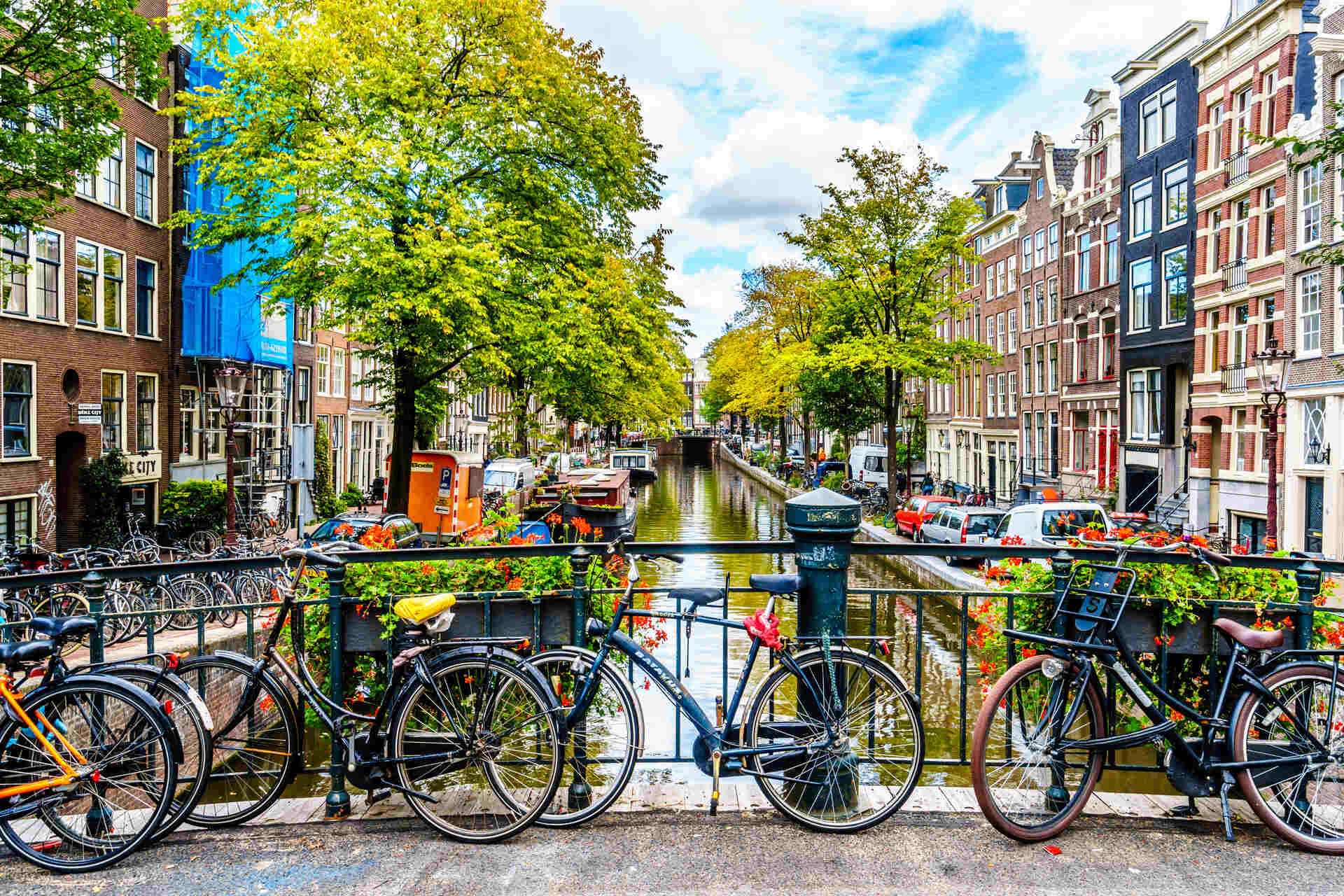

Adjusting to a new country is seldom easy. In addition to all the logistical challenges that come with relocating to a new place, you also have to grapple with cultural differences, language barriers, and homesickness. It’s no wonder, then, that so many people experience depression after moving internationally. So, be adequately prepared for all aspects of the move and have the best possible journey.
Depression is a common but serious problem that can be especially difficult to deal with after a move. It can make it hard to do the things you need to do. That’s why it’s more than just important to learn what post-moving depression is and how to cope with it. We all know that relocating across the world can be an exciting process, but it can bring some negative feelings too. So, if planning to book a reliable international moving company to take care of your move, ensure you do some research on depression after relocating as well.
Is Depression After Moving a Real Thing?
Yes, it is true. Even when moving to a new home, it’s possible to experience depressive symptoms after a major relocation. Just about every aspect of your life will be different after relocating to a new location, from your routines to your social circle to where you left your car. Even simple tasks like looking for a new laundry facility can be stressful. Recognize right away that your sentiments are valid no matter where you are.
Depression after relocating overseas is a real thing. It’s called post-relocation depression, and it’s a type of adjustment disorder. Adjustment disorders are diagnosed when someone experiences significant emotional distress in response to a major life event, like moving.
The symptoms of post-relocation depression can include sadness, anxiety, feeling overwhelmed, trouble sleeping, and difficulty adjusting to new surroundings. If you’re struggling after a move, it’s important to reach out for help.
There are several reasons why people may experience depression after relocating internationally. Some of the most common include:
- Feeling isolated and alone in a new country,
- Culture shock and having to adjust to a new way of life,
- Language barriers and difficulty communicating with others,
- Homesickness for family and friends,
- Losing an established support system,
- Excessive demand of your physical and emotional energy,
- Interruption of your regular routine,
- Financial stress from the cost of living overseas,
- Work-related stress from having to adjust to a new job in an unfamiliar environment,
- Relocation stress from having to prepare every item for shipping (when not getting packing services).
All of these factors can contribute to feelings of depression and anxiety. Additionally, if you have pre-existing mental health conditions, such as anxiety or bipolar disorder, relocating to a new country can trigger a relapse.
What Are the Relocation Depression Symptoms?
As already explained, depression is a mental health disorder that can cause a range of different symptoms. People who experience depression may feel persistently sad or down, have low energy levels, and lose interest in activities they used to enjoy. Depression can also lead to physical symptoms such as changes in appetite and sleep patterns.
Relocation depression is a type of depression that can occur after a person moves to a new location. It is often characterized by feelings of homesickness, isolation, and adjustment difficulties, especially if moving abroad alone. It doesn’t even matter if you’ve picked one of the best cities to live in Europe. People who experience relocation depression may also have symptoms of anxiety and stress. Check out other symptoms of this disorder:
- Alterations to your sleep pattern,
- Difficulties concentrating on tasks or self-care,
- Feelings of sadness or hopelessness,
- Most of the time irritability or frequent mood swings,
- Lack of engagement in your hobbies and regular activities,
- Physical signs such as headaches or pains,
- Changes to your eating habits and appetite,
- Thoughts of suicide or self-harm.
Now that you’re aware of the most common symptoms, it should be easier to notice them in your own or a loved one’s behavior and take the needed measurements.

What’s the Difference Between Relocation Depression and Sadness?
Depression is different from sadness in a few key ways. First, depression is more than just feeling down for a day or two. Depression is a persistent sense of hopelessness and despair that can last for weeks, months, or even years. Second, people with depression often have physical symptoms, such as fatigue, changes in appetite, and trouble sleeping. And finally, depression can make it hard to concentrate, remember details, and make decisions.
It’s normal to experience melancholy and grief when you first leave your old neighborhood, routines, and way of life. However, this is not the same as depression after relocating abroad. Although it is a sign of depression, sadness is not a clear sign. Since it doesn’t persist as long as depression, it frequently resolves on its own.
Clinical depression is extensive and persistent, which means that your symptoms have been bothering you for at least two weeks and are affecting all facets of your life, including your job, home, relationships, and your self-image.
According to the National Institute of Mental Health (NIMH), depression is probably brought on by a combination of environmental and genetic factors, while it can be made worse by a significant life change, such as moving to a new location. On the other hand, sadness is a normal emotion that everyone experiences from time to time. It’s usually short-lived and doesn’t interfere with your ability to function.

How to Know the Difference Between Moving Depression and Situational One?
If you have recently started experiencing depressive symptoms and have not yet received a clinical depression diagnosis, situational depression may be the cause. The reasons can be many – whether you had a hard time deciding where to live or figuring out how to live abroad.
Situational depression is a subtype of depression that is directly influenced by your current situation. With a few significant exceptions, it shares many characteristics with clinical depression. In the table below, check out the features of situational and clinical depression.
| Situational depression | Clinical depression |
|---|---|
| It usually goes away after six months after you've adapted to the changes in your life, received professional help, or both | May be handled with the help of professionals |
| Has some symptoms of depression | It's most likely a result of a combination of environmental and genetic factors, but stress may exacerbate it (like moving) |
| It begins within three months of the stressors | Could be long-term |
| Likely brought on by a particular event, such as a relocation, death, financial strain, breakup, or other significant life change | Has formal signs of depression |
What Are the Coping Strategies You Can Use When Feeling Depressed After Moving Overseas
There are various methods to help in your new setting if you already have depression or symptoms that have persisted for longer than two weeks. These methods will also make relocation easier, especially if it’s international moving where everything is new and unknown.
Psychotherapy
You do not need to experience this alone. Working with a counselor could make you feel lighter, give you a secure space to express yourself, and assist you in learning coping mechanisms to control your symptoms. It can also assist you in realizing all the benefits of the move and the fact you’re actually living in one of the best countries out there.
Support Groups
Support groups are amazing, especially after moving overseas. There you’ll meet different people who face similar challenges and assist you in overcoming them. One in five American adults experiences mental illness each year, according to NAMI (National Alliance on Mental Illness). So, it’s good to consider some support groups, and don’t be scared because they could be just like the expat communities.
Medication
Neurotransmitter levels in the brain can occasionally be changed to treat severe symptoms of depression. Working with a medical practitioner to determine whether antidepressant pills are a good fit for your symptoms may be a smart option.
Self-Help Activities
Numerous lifestyle choices could aid in managing the symptoms of relocating depression. After all, relocating to another country is a great opportunity for a fresh start and a new, healthy routine. These consist of:
- Obtaining between seven and nine hours of sleep each night while also engaging in at least ten minutes of physical activity,
- Meditating for a short while each day and spending quality time in nature,
- Avoiding consuming food and products that elevate your mood whenever possible,
- Restrict the use of drugs and alcohol.
How Can You Protect Your Mental Health When Moving Internationally?
While it’s not always possible to prevent depression after moving internationally, there are steps you can take to lessen your risk. After all, not all people find it helpful to think about all the reasons to move and about the best places to live abroad. With that in mind, let’s take a look at a few ways to help you cope with this disorder.
Establish “Anchors” in Your New Location
As you already know – a ship will drift away from the safe harbor and out to open water if there isn’t an anchor, losing all sense of direction. Similar feelings can result in a big move.
Frequently, we are unaware of how much we depended on the little conveniences of our previous residence to keep us anchored and grounded, such as recognizing familiar and friendly faces at the supermarket or taking the same commute to work each day.
It’s best if you can establish routine and structure in your new neighborhood as soon as possible. Consider the following actions:
- Find your local supermarket,
- Pick a favorite coffeehouse,
- Join a gym or a yoga studio,
- Find a fun path for walking your dog,
- Pick a laundry facility.
While these might seem insignificant at first, you are actually placing “anchors” across town with each new location you discover. In the video below, check out some amazing travel tips on how to explore new cities.
Expand Your Network of Supporters
We are connected through wiring. Once you start making new friends, especially those who are also new to the area like yourself, you might begin to feel more “at home.” Here are some suggestions for networking:
- Game nights,
- Activism work,
- Group sports,
- Volunteer projects,
- Interest groups,
- Language or art classes.
Keep in Touch With Your Loved Ones
It might be a good idea to catch up with old pals on a Saturday evening while you’re at home because you don’t know where to head yet. You might feel less alone after a phone call, a Zoom date, or an online conversation.
Additionally, see if anyone in your social network is familiar with the area where you’ve moved. They could be ready to introduce you or send your contact details. You never know; one connection could lead to your new workout partner.

Everybody Feels a Bit Depressed After Moving Into New House, but Don’t Let That Stop You
Moving internationally is a big adjustment – one that can come with its fair share of challenges. It’s important to be aware of the risk of depression and what you can do to prevent it. By doing your research ahead of time, staying connected with loved ones back home, making an effort to meet people in your new community, and seeking professional help when needed, you can minimize the risk of experiencing depression after relocating overseas.





